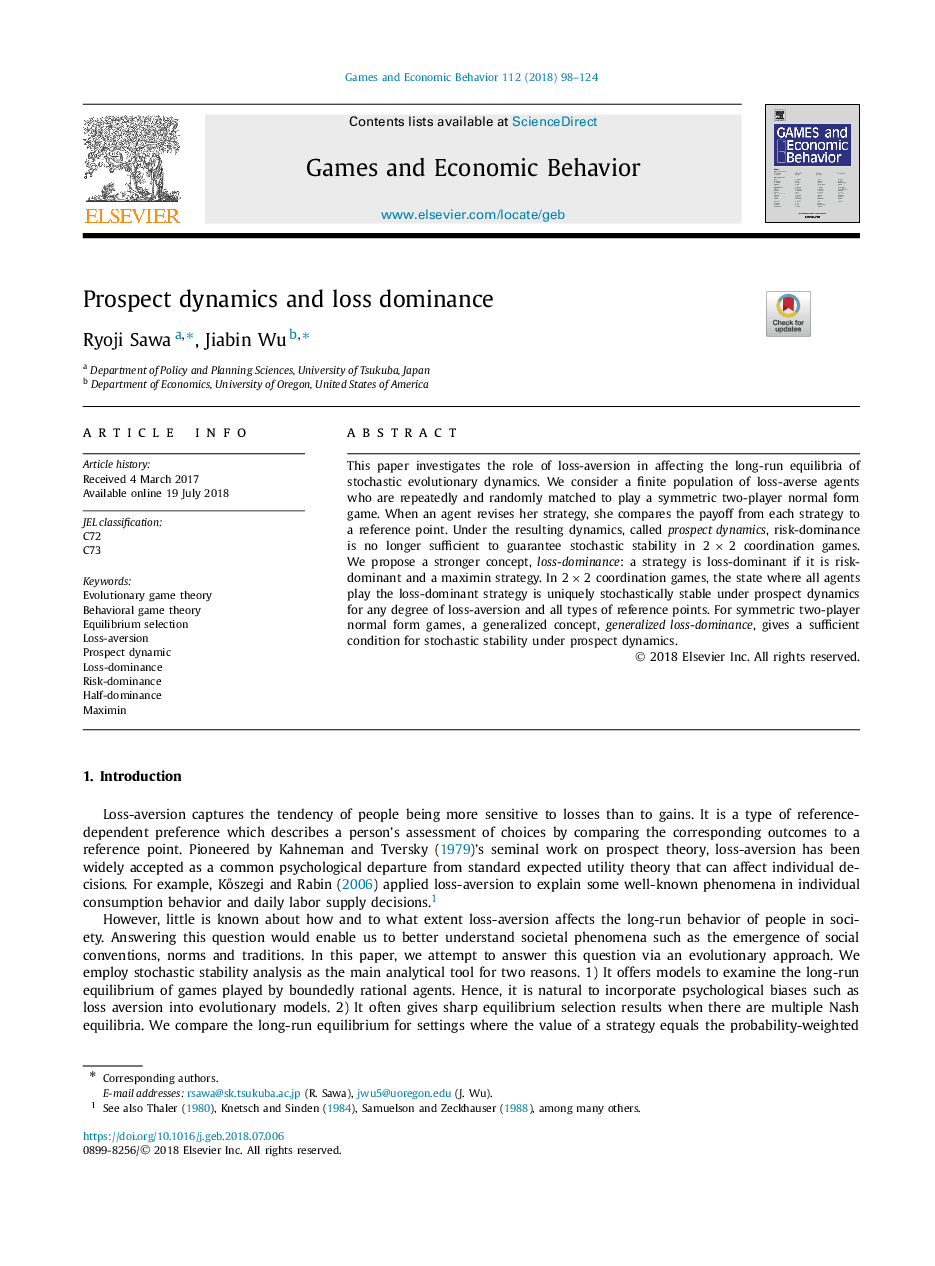| Article ID | Journal | Published Year | Pages | File Type |
|---|---|---|---|---|
| 9953024 | Games and Economic Behavior | 2018 | 27 Pages |
Abstract
This paper investigates the role of loss-aversion in affecting the long-run equilibria of stochastic evolutionary dynamics. We consider a finite population of loss-averse agents who are repeatedly and randomly matched to play a symmetric two-player normal form game. When an agent revises her strategy, she compares the payoff from each strategy to a reference point. Under the resulting dynamics, called prospect dynamics, risk-dominance is no longer sufficient to guarantee stochastic stability in 2â¯Ãâ¯2 coordination games. We propose a stronger concept, loss-dominance: a strategy is loss-dominant if it is risk-dominant and a maximin strategy. In 2â¯Ãâ¯2 coordination games, the state where all agents play the loss-dominant strategy is uniquely stochastically stable under prospect dynamics for any degree of loss-aversion and all types of reference points. For symmetric two-player normal form games, a generalized concept, generalized loss-dominance, gives a sufficient condition for stochastic stability under prospect dynamics.
Keywords
Related Topics
Social Sciences and Humanities
Economics, Econometrics and Finance
Economics and Econometrics
Authors
Ryoji Sawa, Jiabin Wu,
